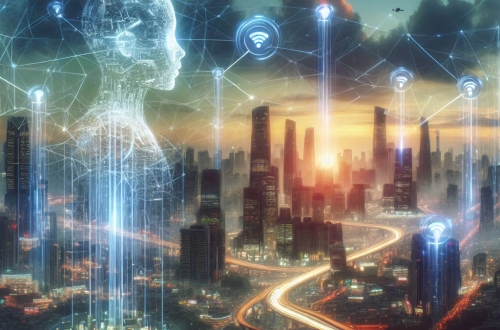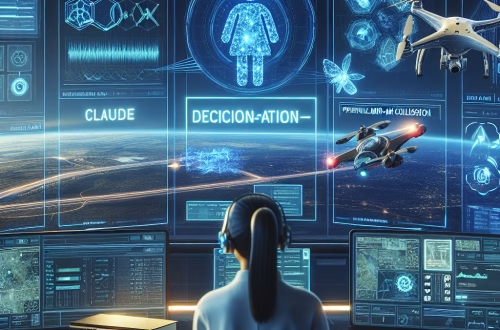Can ChatGPT Generate Google Ads Copy
Summary:
ChatGPT, OpenAI’s advanced language model, has demonstrated remarkable capabilities in generating persuasive and engaging Google Ads copy. Businesses and marketers exploring AI-powered solutions can leverage ChatGPT to create scalable ad variations tailored to different audiences. While ChatGPT can significantly reduce time spent brainstorming headlines and descriptions, human oversight remains necessary for compliance and brand alignment. This article examines how ChatGPT can streamline Google Ads copywriting while highlighting key considerations for optimal results.
What This Means for You:
- Faster ad creation: ChatGPT can generate dozens of Google Ads variations in seconds, enabling rapid A/B testing campaigns. This helps businesses experiment with different messaging approaches without extensive manual effort.
- Cost-effective content: Small businesses with limited ad budgets can use ChatGPT to create professional-level ad copy without hiring expensive copywriters. However, the best results come from refining AI-generated suggestions.
- Scalable personalization: You can instruct ChatGPT to create audience-specific versions highlighting different benefits or features. This works especially well for multi-product businesses needing tailored messaging.
- Future outlook or warning: While AI-generated ad copy will become increasingly sophisticated, platforms may implement stricter disclosure requirements. Over-reliance on ChatGPT without strategic input could lead to generic-sounding ads that underperform against human-crafted campaigns.
Explained: Can ChatGPT Generate Google Ads Copy
The Capabilities of ChatGPT for Google Ads
ChatGPT excels at structuring Google Search Ads following best practices, including character-limited headlines (30 characters), descriptions (90 characters), and display paths. The AI understands fundamental persuasion techniques like:
- Benefit-driven messaging
- Clear call-to-action phrases
- Emotional triggers
- Keyword incorporation
Optimizing ChatGPT Prompts for Google Ads
Precise prompting dramatically improves output quality. Effective prompts should include:
- Target audience details (demographics, pain points)
- Primary value proposition
- Tone preferences (professional, conversational, urgent)
- Competitor differentiators
- Specific Google Ads formatting requirements
Strengths of AI-Generated Ads
ChatGPT performs exceptionally well for:
- Generating large volumes of variations for testing
- Incorporating trending keywords naturally
- Creating location-specific ad variations
- Translating base copy into multiple languages
Critical Limitations
Important constraints include:
- Lack of real-time performance data awareness
- Potential for factual inaccuracies in product claims
- Difficulty replicating distinctive brand voices
- No inherent understanding of current Google Ads policy changes
Best Practices for Implementation
For best results:
- Generate multiple variations then refine selections
- Verify all factual claims and statistics
- Maintain consistent formatting across ad groups
- Combine AI output with converting keywords from past campaigns
- Human-test for natural language flow before launching
People Also Ask About:
- Can ChatGPT write compliant Google Ads?
While ChatGPT can structure ads that appear compliant at first glance, it doesn’t actively check against Google’s ever-changing ad policies. The AI may inadvertently include prohibited claims, exaggerated language, or unsubstantiated superlatives. Always review AI-generated ads against current Google Ads policies before submission.
- How does ChatGPT-generated ad copy perform compared to human-written ads?
Early testing shows AI-generated ads achieve comparable click-through rates for straightforward products/services. However, human-crafted ads still outperform for complex offerings requiring nuanced positioning. The most effective approach combines ChatGPT’s scalability with human strategic oversight.
- Can ChatGPT optimize ads for specific conversion goals?
While you can instruct ChatGPT to emphasize lead generation, purchases, or other conversions, the AI lacks direct integration with conversion data. Effective optimization still requires combining ChatGPT’s output with performance analytics and iterative testing.
- Is there a risk of duplicate ad copy when using ChatGPT?
Yes – since ChatGPT draws from publicly available information, businesses in competitive markets may generate similar-sounding ads. Distinctive messaging requires injecting unique value propositions and brand differentiators into your prompts.
Expert Opinion:
Industry analysts observe that AI-generated ad copy works best as a starting point rather than a finished product. While significantly accelerating the creative process, over-reliance on AI without proper oversight risks policy violations and mediocre performance. Savvy marketers are developing hybrid workflows where ChatGPT handles initial ideation while humans provide strategic direction, brand alignment, and performance-driven refinements.
Extra Information:
- Google Ads Policies – Essential reference for ensuring AI-generated ads comply with platform requirements
- Google’s AI Solutions – Shows how Google is implementing native AI tools that may integrate differently than ChatGPT
Related Key Terms:
- AI generated Google Ads examples
- ChatGPT for PPC advertising
- Automated Google Ads copywriting
- Best prompts for Google Ads ChatGPT
- Limitations of AI ad copywriting
- ChatGPT vs human Google Ads writers
- Optimizing ChatGPT for search ads
Check out our AI Model Comparison Tool here: AI Model Comparison Tool
#ChatGPT #Generate #Google #Ads #Copy #Guide #AIPowered #Creation
*Featured image provided by Dall-E 3





